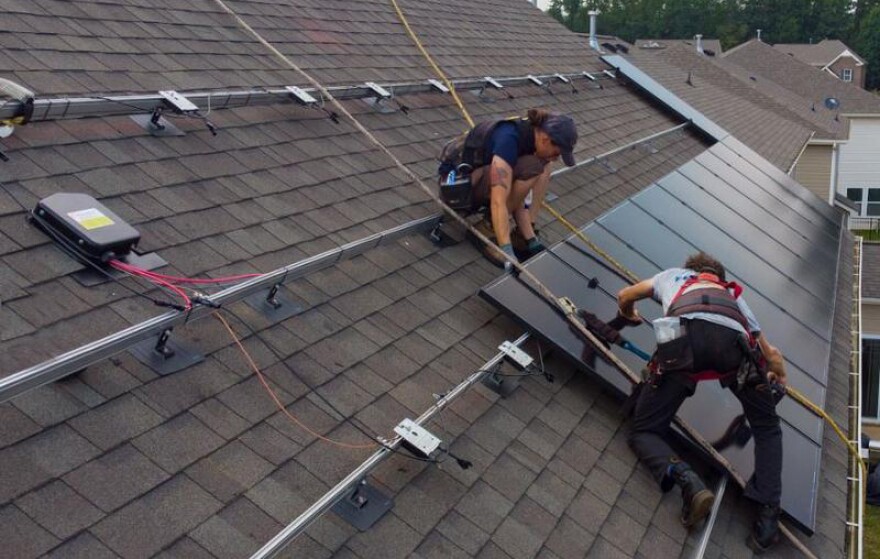Environmental groups are asking the North Carolina Court of Appeals to overturn Duke Energy's new rates and rules for residential rooftop solar panels that took effect Oct. 1.
The appeal was filed by the Environmental Working Group, NC WARN, 350 Triangle, 350 Charlotte, the Sunrise Movement and other groups. They argue that state regulators erred in approving the new rules last March without an independent study of the costs and benefits of rooftop solar.
The changes reduce what rooftop solar owners get paid for excess electricity sent to the grid and add a new $10 monthly rooftop solar fee. Existing customers can remain under the old rules until 2027, including receiving bill credits equal to whatever they pay for electricity.
Environmental groups and some solar installers are concerned that the rules changes eliminate incentives that have spurred growth of rooftop solar installations in recent years and could hurt the industry.
"It's clear from the studies produced in the case that net metering is a net benefit to all of the customers in the Duke Energy system," said Jim Warren, of NC WARN.
"The overarching benefit is that rooftop solar — what we call a local solar — and (battery) storage is the fastest and cheapest way for North Carolina to reach its climate goals," Warren added.
Caroline Leary, general counsel of the Environmental Working Group, said in a statement: "The state law requiring the commission to conduct a comprehensive cost-benefit analysis is crystal clear, yet regulators have flagrantly ignored it. By reducing these financial incentives, the commission is effectively discouraging homeowners from installing rooftop solar, which will stymie the state's efforts to reduce CO2 emissions and address the climate crisis."
The rules changes were called for in state legislation, including House Bill 589 in 2017. The bill's author, former Rep. John Szoka has said he intended for the commission to conduct a cost-benefit study of net metering, not Duke Energy. But Duke argued, and the commission agreed, that Duke's own internal study was adequate.
Duke had argued that under the old rates, rooftop solar customers were getting an unfair subsidy from other customers.
In a statement Monday, Duke Energy spokesman Randy Wheeless said: "Duke Energy feels confident that our work with stakeholders and evaluation by the N.C. Utilities Commission has resulted in a sustainable future for net metering — one that treats solar and non-solar customers fairly."
A spokesman said the utilities commission does not comment on appeals of its decisions or participate in legal arguments.
In the March order, regulators rejected arguments by the environmental groups and attorney general's office that an independent study is required.
Duke also is making similar changes to North Carolina's non-residential solar net metering rules. After approval by regulators, they took effect Oct. 1 in the company's Duke Energy Progress territory in Raleigh and eastern North Carolina and the Asheville area. Duke has proposed the same changes for its Duke Energy Carolinas territory in western and central North Carolina, including Charlotte, Greensboro and Durham. The commission has not yet ruled on those changes, which are included in a rate increase request.
Duke Energy currently has 43,000 residential and business net metering customers in North Carolina, Wheeless said.
See the appeal brief on the Court of Appeals website.




